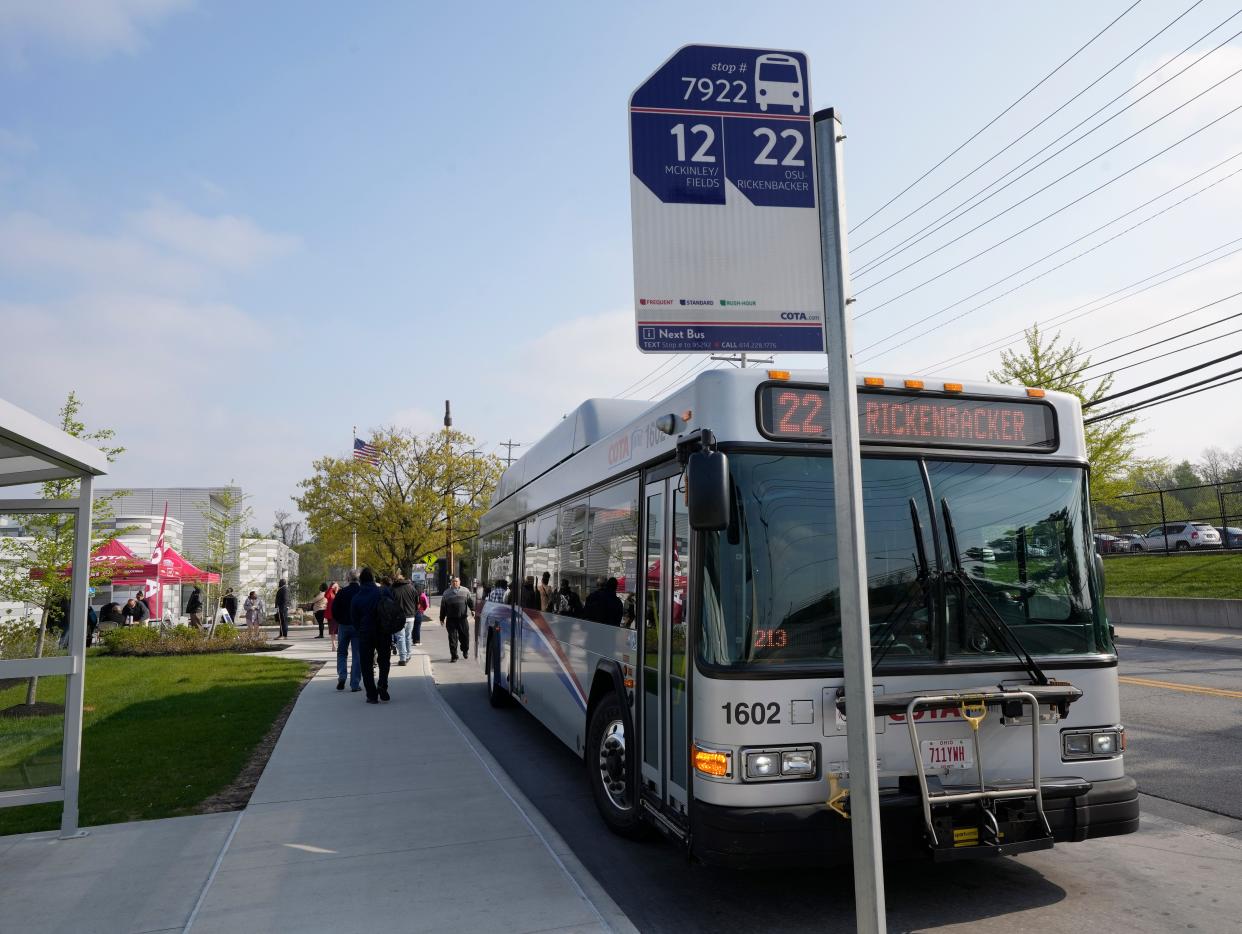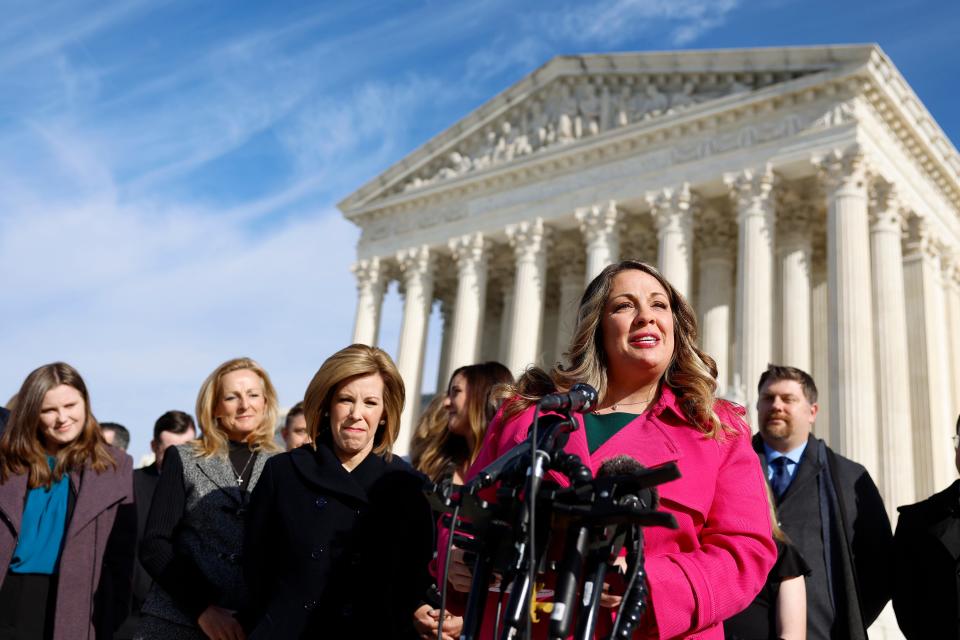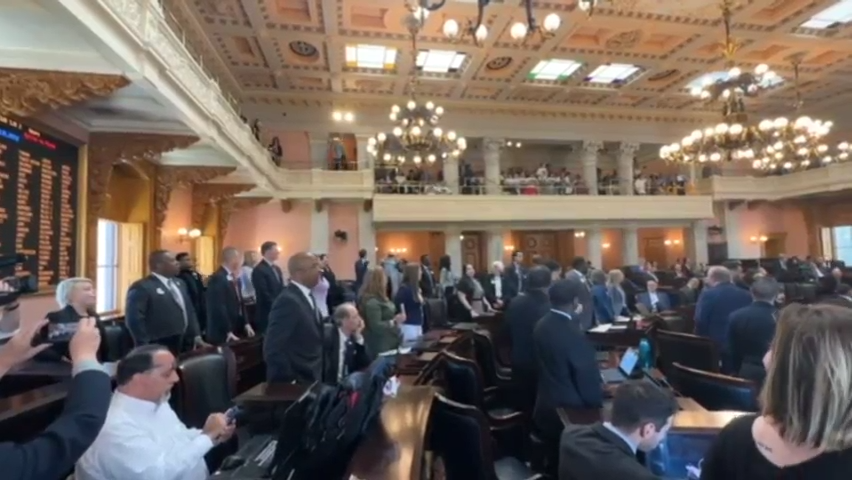Letters: Bus ride after fireworks a 'frustrating disaster.' A nod to bigots everywhere.

COTA needs a MUCH better plan
I have been a COTA commuter since before 2015 and one of public transit's biggest fans. But trying to get home on July 3 from downtown Columbus is a frustrating disaster every year.
The 2023 trip was the worst.
Letters: Enough with the fireworks. July 4 now 'a drunk's party for noise makers'
Not only did riders not know where to catch their buses, many drivers did not seem to know where they were expected to be. I lost count of how many of my fellow riders could not find their bus to get home.
If a whole year is not enough time for COTA to develop a strategy to communicate with riders and get them home on July 3, I encourage the leadership to reach out to the many partners in central Ohio that could help them come up with a better plan.
Because a MUCH better plan is needed for 2024.
Goens Kennedy, Dublin

More: How to submit a letter to the editor for The Columbus Dispatch
A nod to bigots everywhere

I grew up in the segregated South; I can tell you that all those folks who believed in the system of separate-but-equal, who thought race-mixing was a taboo, held their beliefs as sincerely as Lorie Smith — the website designer referenced in Ingrid Jacques op-ed piece.
Ingrid Jacques: Freedom wins - Supreme Court web designer ruling is victory for free speech rights
The most significant flaw in Ingrid Jacques’ (and the U.S. Supreme Court’s) reasoning is the assertion that sincerely held beliefs or “conscience" should be protected under law.
I know Mr. James Crow when I see him—even gussied up in "conscience.”
Separate-but-equal, and similar laws were effectively overturned by Brown v. Board of Education in 1954.
Prior to Brown, “conscience” (many ardent believers were preachers, community leaders, and churchgoers) revealed that God didn’t want blue-jays and redbirds to mingle — and, more recently, doesn’t want gays to marry.
More: Jeffries: Are Supreme Court justices 'tone deaf' or is something 'sinister going on here?'
This decision by a “Christian” conservative majority on the Supreme Court, is a nod to bigots everywhere. What’s to stop someone who sincerely believes in the inequality of the races to refuse service to whomever they wish?
'Let-them-eat-cake obliviousness.' 8 cartoons about fall of affirmative action, Supreme Court
You can shout your ignorant beliefs from the rooftops, and nobody was stopping Smith from doing just that, but sincerely held beliefs cannot be the basis for equal treatment (or denial of service) under the law.
Candy Canzoneri, Westerville
Issue 1 bad for Ohio

On Aug. 8, Ohioans will vote on State Issue 1, which would require a 60% passage rate for citizen-led constitutional amendments instead of the current simple majority.
This change, along with increased signature-gathering requirements, seriously undermine the ability of Ohioans to engage in direct democracy to enact popular mandates.
Since 1912, Ohioans have approved popular measures such as county home rule, limits on property taxes, minimum wage, bond issues, elimination of straight-ticket voting through citizen-led initiatives. None of these measures would have passed with a 60% majority.
Ohioans have always been judicious in considering ballot initiatives.
Our view: A 'yes' vote on Issue 1 would drive dagger in Ohio's 'heart'
In the last fifteen years, only six out of 51 proposed amendments got enough signatures to appear on the ballot, and only three of those achieved passage. Furthermore, Issue 1’s requirement for signatures from all 88 counties, instead of the current 44, means that a shortfall in signatures from just one county will doom any initiative.
Ohio Issue 1 makes the process of getting proposals on the ballot so difficult as to virtually guarantee that only special interests with deep pockets will be successful in amending the constitution.
Mike Curtin: 'Brazen crookedness' that lead to constitutional right LaRose wants to seize
Although we may approve or disapprove of certain ballot proposals, what’s most critical is preserving the right for the majority of Ohioans to decide popular reforms to the Ohio constitution.
Four former Ohio governors of both parties oppose Issue 1. You should too.
Laura Joseph, Granville
This article originally appeared on The Columbus Dispatch: Bus ride after fireworks a disaster. A nod to bigots everywhere| Letters

